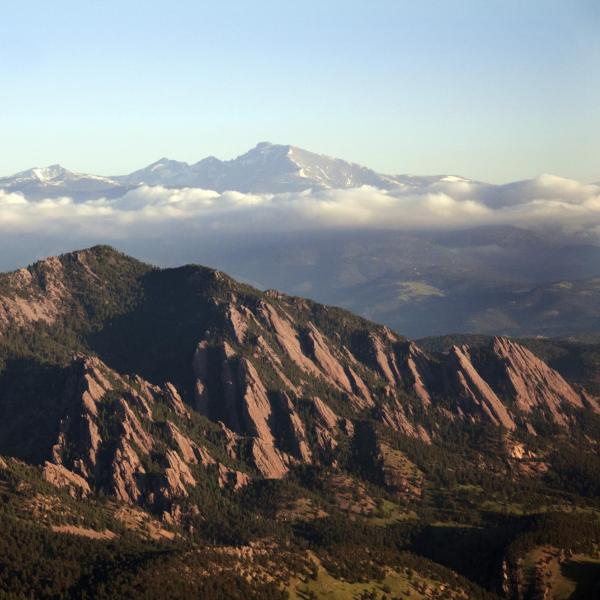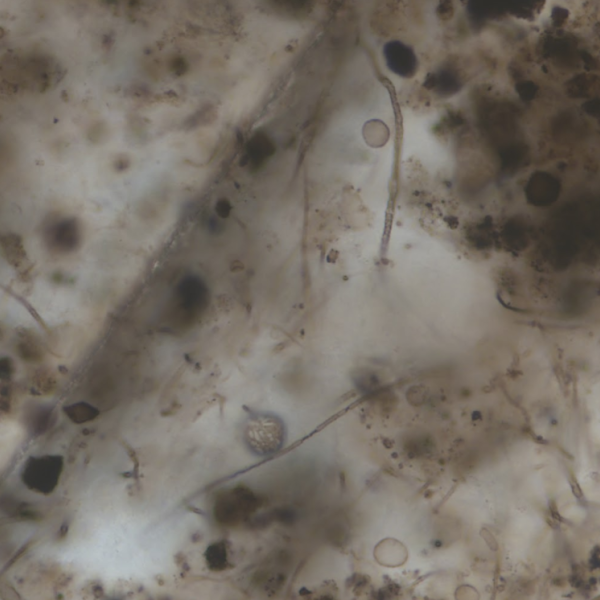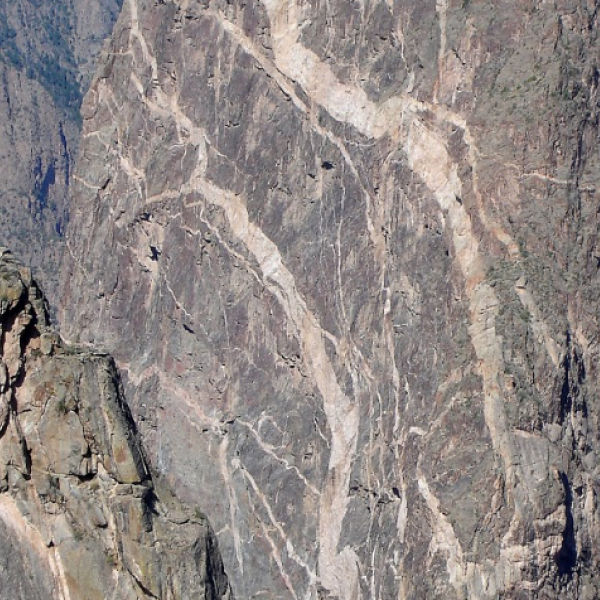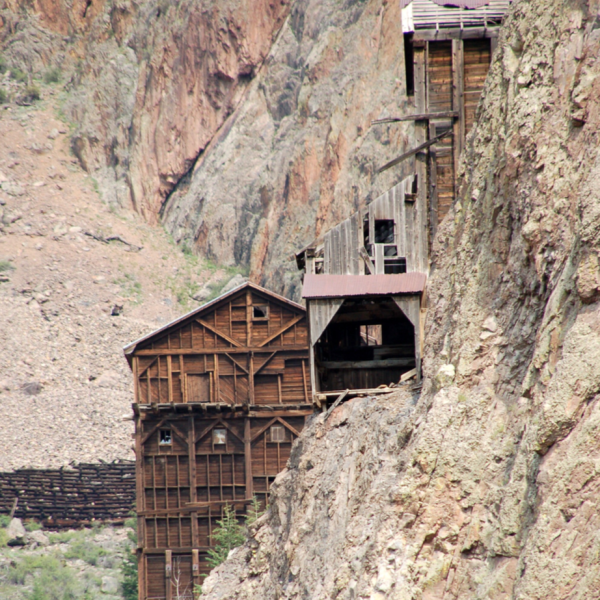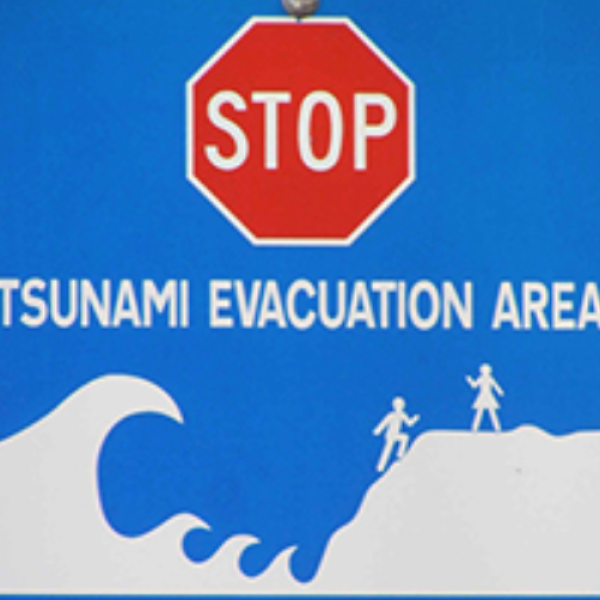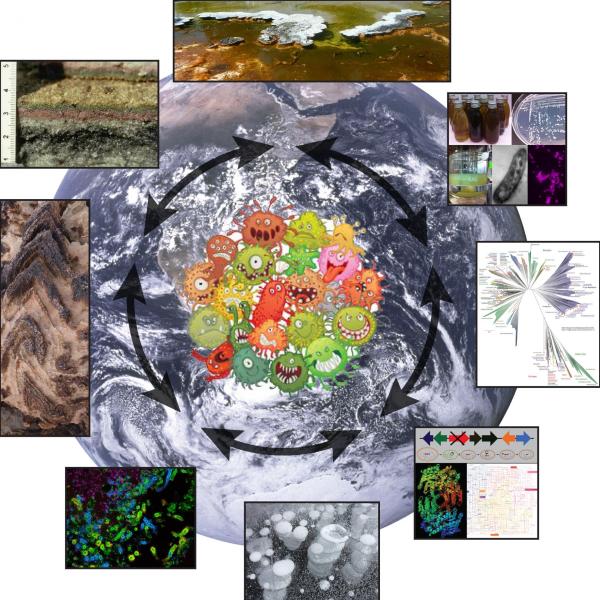Undergraduate Degree Programs
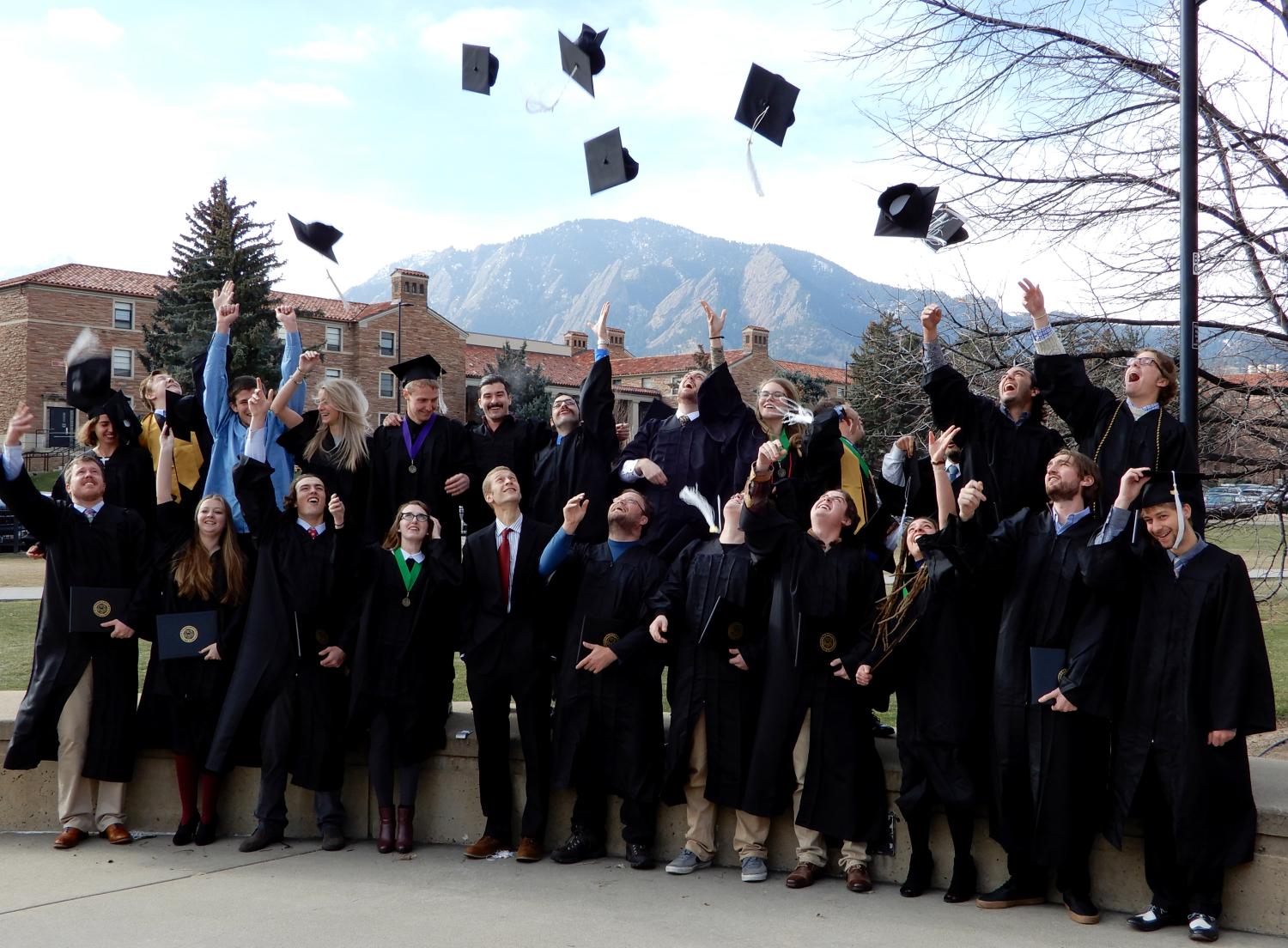
The major in geology offers two options, each leading to a Bachelor of Arts degree. The Geology Option is flexible and offers in-depth training in geology and the opportunity to explore broader aspects of the geosciences (eg. Water, surface process, geobiology). This option requires a broad scientific and analytical background based on chemistry, physics, and mathematics. The Geophysics Option focuses on the materials, structure, and processes of the Earth’s interior, as well as the deformation and dynamics of the Earth.
How to apply
Interested in coming to the University of Colorado Boulder for an undergraduate degree in Geological Sciences? Please visit the university admissions pages for details on the application process. We look forward to welcoming you into the Geological Sciences major.
Available Courses
Please visit the CU Boulder course catalog for the current course listings.
Requirements for Geology Option
Ancillary coursework:
- Chemistry 1 + Lab and 2 + Lab (CHEM1113, 1114, 1133, 1134) – 10 credits
- Calculus 1 and 2(MATH1300 or APPM1350 AND MATH 2300 or APPM1360) – 10 credits
- Physics 1 and 2 plus Experimental Physics lab class (PHYS 1110, 1120, 1140) – 9 credits
Total required ancillary credits: 29 credits
Tier 1 Trunk Course:
- One of the following: GEOL1010, 1012, 1020, 1040, 1060, 1150, 1170, 1180 – 3 credits
- GEOL1030 – 1 credit
Or equivalent work with advisor permission
Total required credits for Tier 1: 4 credits
Tier 2 Trunk Courses:
- GEOL2001 (Planet Earth) – 4 credits
- GEOL2005 (Earth Materials) – 4 credits
- GEOL2700 (Introduction to Field Geology) – 2 credits
Total required credits for Tier 2: 10 credits
Tier 3 Trunk Courses:
- One Solid Earth course. Students choose one of the following: GEOL 3010, 3020, 3120, 3320, 3330, 3430, (i.e. Mineralogy; Petrology; Structural Geology; Geochemistry; Sedimentation and Stratigraphy; Geophysics) – 3-4 credits
- One Surface Processes course. Students choose one of the following: GEOL 3030, 3320, 3410, 3430, 3820, 4060, 4070, 4160, 4241 (i.e. Hydrogeology; GeochemistryPaleobiology; Sedimentology and Stratigraphy; Fluid Earth; Oceanography; Paleoclimatology; Biogeochemistry; Geomorphology) – 3-4 credits
- One Quantitative Geoscience course. Students choose one of the following: GEOL 3010, 3030, 3330, 3820, 4241(i.e. Mineralogy; Hydrogeology; Fluid Earth; Geophysics; Geomorphology) – 3-4 credits
Total required credits for Tier 3: 9-12 credits. Note that some courses are listed in
multiple tier 3 trunk categories. Students can choose which category to apply the course to but a
given course can be applied to only one category.
Elective ‘branch’ coursework:
- Sufficient UD coursework from any of the approved branches that was not used to satisfy a Tier 3 requirement to total 27 upper division credits (this total includes 9-12 credits of Tier 3 work). A minimum of 18 of these credits must be GEOL courses.
Approved GEOL courses: 3010, 3020, 3030, 3050, 3070, 3120, 3300, 3320, 3330, 3410, 3430, 3540, 3820, 3930,4060, 4070, 4093, 4120, 4160, 4241, 4270, 4330, 4474, 4500, 4550, 4670, 4700, 4711, 4712, 4714, 4715, 4716, 4717, 4719, 4721, 4840, 4851
Approved non-GEOL courses: CVEN 3454, 4404, 4718; EVEN 4100; EBIO 3080, 3270, 3770, 3850, 4030, 4060, 4410, 4500, 4570, 4630; MCDB 4350; GEOG 4251, 4261, 4321, 4401, 4201; ATOC 4720, 4800; ENVS 3434, 4201 (same as GEOG4201); ENVD 4023; ECON 3403; PSCI 4183; MUSM 4914; ASTR 3710, 3720, 3750, 4800; CHEM 4511; APPM 3050. - 4 of those credits must consist of 2 upper division field modules. Approved field modules are: GEOL 4711, 4712, 4714, 4715, 4716, 4717, 4719, 4721, EBIO 4630; EVEN 4100
- A maximum of 3 of those credits can consist of a policy course from the following list: ATOC 4800; ASTR 4800; PSCI 4183; ECON 3403; ENVD 4023.
Geophysics option
Ancillary coursework:
- Chemistry 1 + Lab (CHEM1113, 1114) – 5 credits
- Calculus 1 and 2(MATH1300 or APPM1350 AND MATH 2300 or APPM1360) – 10 credits
- Physics 1 and 2 plus Experimental Physics lab class (PHYS 1110, 1120, 1140) – 9 credits
Total required ancillary credits: 29 credits
Tier 1 Trunk Course:
- Students take one of the following: any GEOL1000 level courses – 3 credits
- GEOL1030 – 1 credit
Or equivalent work with advisor permission
Total required credits for Tier 1: 4 credits
Tier 2 Trunk Courses:
- GEOL2001 (Planet Earth) – 4 credits
- GEOL2005 (Earth Materials) – 4 credits
- GEOL2700 (Introduction to Field Geology) – 2 credits
Total required credits for Tier 2: 10 credits
Tier 3 Trunk Courses:
- One Solid Earth course. Students choose one of the following: GEOL 3010, 3020, 3120, 3320, 3330, 3430 (i.e. Mineralogy; Petrology; Structural Geology; Geochemistry; Sedimentation and Stratigraphy; Geophysics) – 3-4 credits
- One Surface Processes course. Students choose one of the following: GEOL 3030, 3320, 3410, 3430, 3820, 4060, 4070, 4160, 4241 (i.e. Hydrogeology; Geochemistry; Paleobiology; Sedimentology and Stratigraphy; Fluid Earth; Oceanography; Paleoclimatology; Biogeochemistry; Geomorphology) – 3-4 credits
- One Quantitative Geoscience course. Students choose one of the following: GEOL 3010, 3030, 3330, 3820, 4241(i.e. Mineralogy; Hydrogeology; Fluid Earth; Geophysics; Geomorphology) – 3-4 credits
Total required credits for Tier 3: (9-12 credits)
*Note that some courses are listed in multiple tier 3 trunk categories. Students can choose
which category to apply the course to but a given course can be applied to only one
category.
Required Tier 3 ‘branch’ coursework:
- GEOL3120 – Structural Geology (4 credits), satisfies Tier 3 solid Earth requirement
- GEOL3330 – Principles of Geophysics (3 credits), satisfies Tier 3 quantitative requirement
- One additional Tier 3 approved GEOL course not used to fulfill a different requirement (3-4 credits).
- GEOL4714 – Field Geophysics (2 credits)
Other Required non-GEOL courses
- Calculus 3: MATH 2400 or APPM 2350 (4-5 credits)
- Differential Equations: APPM 2360 or MATH 3430 (3-4 credits)
- Physics 3: PHYS 2130 (3 credits)
- Classical Mechanics and Mathematical Methods: PHYS 2210 (3 credits)
- Two of the following (6 credits)
a. PHYS 3210 - Classical Mechanics and Mathematical Methods 2
b. PHYS 3310 - Principles of Electricity and Magnetism 1
c. MATH 4470 - Partial Differential Equations
d. APPM 4350 - Methods in Applied Mathematics: Fourier Series and Boundary Value
Problems - One computing course (3-4 credits): GEOL 3600, INFO 1701, CSCI 1200, CSCI 1300, ASTR 2600, PHYS 2600, APPM 1650, APPM 3050, GEOG 4463


